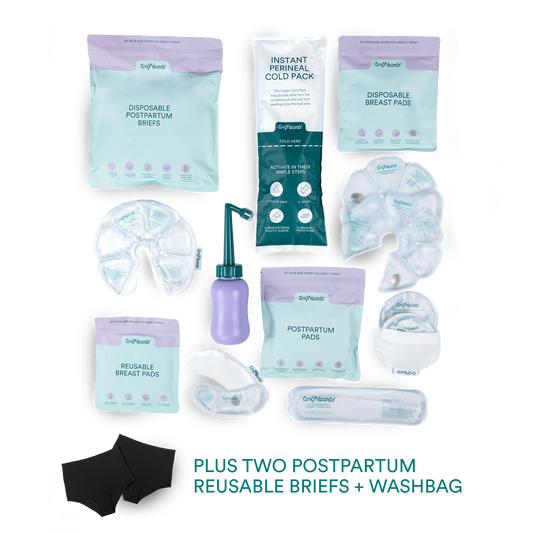It happens to every parent everywhere; your little one is fussing and crying! This is completely normal and it’s your bub’s way of communicating with you! Crying is your child's main form of communication and he or she will be doing a lot of it for the first few months of their life (more than 3 hours a day in some)!
It can be stressful when you have a crying child and you might feel helpless for not understanding what’s wrong, but babies and toddlers can cry for a multitude of different reasons like hunger, they’re tired, in pain, frustrated or uncomfortable.
As your baby develops and becomes older, they tend to cry less and will be able to better vocalise what’s the problem to help you better diagnose their tears!
Causes of Crying and What to Do
First, let’s take a look at possible options why you’re little one may be fussing! It could be something as simple as they’re hungry. When your child starts crying, first make sure he or she is not sick or hurt. If you can’t properly assess this, call your doctor immediately.
If the possibility of sickness isn’t an option, check to see if your little one is hungry! If you’re breastfeeding, offer your baby your breast and if she’s still fussing, try a bottle.
If they’re not hungry, maybe your bub just needs some comfort. Try picking her up and singing to her or rocking her. You can always try putting baby in a stroller or sling and going for a walk to help soothe her. If not hungry or uncomfortable, your baby could be sleepy. Try swaddling your baby gently but firmly and then laying her down to rest. If tired, they should drift off quickly.
Other possible options for all the tears could be a simple nappy change or some gas problems! A baby will fuss with a full nappy or if they have pent up gas. Change the mess and try burping your baby to relieve any gas discomfort. Babies can also be colicky, meaning they will be fussy or unsettled during feeding time.
Toddlers can become fussy for a number of similar reasons as babies with the addition of crying to deal with new and difficult emotions. If this is the case, try taking your toddler somewhere quiet to calm them down or going for a walk or even a calming bubble bath. If tired, try introducing them to soothing music to help them rest. If your toddler becomes frustrated, try to work out a solution together. This can help them better understand and convey their feelings.
How to Manage the Tears
A crying child can take a toll on you and it can be frustrating at times but remember; you’re not alone and you can always ask for help! A few tips on what to do if your little one just won’t settle are:
- Try going for a walk or drive with your baby. A change of scenery or being out in the fresh air can help and sometimes it’s just easier to cope with a fussy baby when you’re on the move
- If you’re feeling frustrated, place your baby in her crib or a safe place and take a five minute break for yourself. It’s okay!
- If you know a specific time of day when your baby seems to be the fussiest, ask a friend or relative to come over and help.
- Contact any of Australia’s free helplines for parents including Lifeline, PANDA (Perinatal Anxiety and Depression Australia), Men’s Line, Healthdirect Australia or Pregnancy, Birth and Baby
Keen to learn more about life with a new baby and what to expect? Our birthing courses covers everything you need to know about birth, bump and beyond. To learn more about our course click here!







